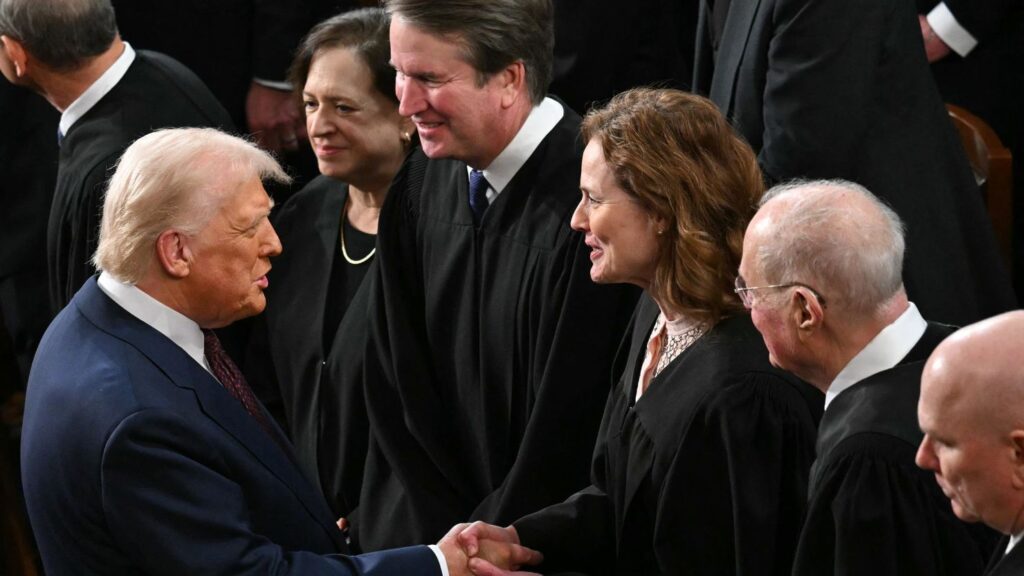As Trump administration lawyers have intensified their appeals to the Supreme Court, they’re relying on recurring tropes.
“Only this Court can end the interbranch power grab,” the lawyers wrote as they urged the justices to reverse a California judge’s order requiring the reinstatement of probationary federal workers.
“Only this Court can right the ship – and the time to do so is now,” they said as they appealed a separate order preserving Department of Education teaching-training grants.
Alito denounced the judge for operating with “unchecked power,” “blithely” disregarding administration arguments and failing to reckon with key precedent before “plowing ahead.”
In the Trump administration’s appeals attempting to reinstate a freeze on Department of Education funds and enforce its dismissal the of probationary employees, government lawyers lift such Alito phrasing. They said lower court judges had “plowed” through legal principles, engaged in a “power grab,” and “blithely” discounted administration arguments.
Appeal to Barrett
Yet even if Alito, Thomas, Gorsuch and Kavanaugh continue to side with the Trump administration, the group needs a fifth vote for a majority.
Submissions from the administration and outside groups backing its efforts have repeatedly cited Barrett, who was Trump’s third appointee in his first term (after Gorsuch and Kavanaugh).
They particularly refer to her prior statements to reinforce their opposition to individual district court judges imposing nationwide orders against Trump policy. In 2023, for example, she joined an opinion that said lower court judges’ powers are essentially limited to “render(ing) a judgment or decree upon the rights of litigants,” which to the administration would suggest universal injunctions should be off-limits.
Barrett’s writings in this area of the law pale when compared to those of, for example, Gorsuch, who suggested in a 2024 case that it was time to “retire” universal injunctions.
The Trump administration has nonetheless added Barrett citations for the argument that various nationwide injunctions imposed by lower court judges against the administration should be suspended.
They cite her view that one consideration for lifting an injunction would be if justices were inclined to grant review on the merits of the dispute. Barrett has also written that postponing the effect of an injunction would “minimize harm while an appellate court deliberates.”
A question of ‘unchecked power’
Since Trump began his second term on January 20, after Roberts administered the oath at the US Capitol, the president has signed dozens of executive orders to fire workers, withhold public funds and overhaul immigration policy.
Those initiatives were just as quickly challenged in federal courts. Multiple lawsuits now at the Supreme Court on preliminary appeals center on Trump’s effort to end birthright citizenship, as well as on the deportations of Venezuelan nationals, cancellation of Department of Education grants and the firing of some 16,000 probationary employees.
In all of these cases, US district court judges blocked the Trump moves and imposed injunctions that extend throughout the country, which Trump lawyers said have reached “epidemic proportions.”
“‘Does a single district-court judge who likely lacks jurisdiction have the unchecked power to compel the Government of the United States to pay out (and probably lose forever) millions in taxpayer dollars?” Trump lawyers wrote in the Department of Education dispute, quoting some of Alito’s language from the USAID case.




